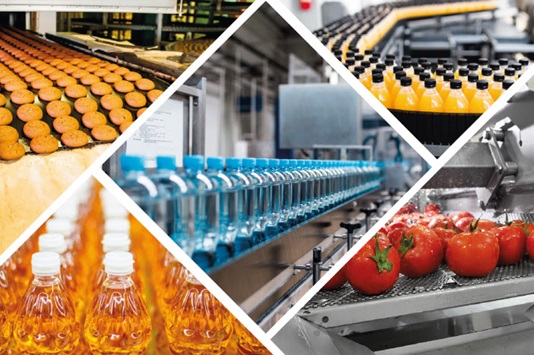
During the covid-19 pandemic, large multinationals in the food and beverage sector were able to quickly adapt their manufacturing environments to deliver new products
Safety is a central issue for any sector, but in few is it as crucial as in the food and beverage industry, as the consumer only adheres to a new brand or variety when he feels completely protected to ingest it. And amidst the high growing demand in Brazil, whether for new products or more quantities, this issue cannot be left aside.
According to the Brazilian Food Industry Association (Abia), the sector recorded an increase of almost 1% in revenue and 2,7% in production volume over the first half of 2020, compared to the same period last year. It is an industry that is responsible for 20% of jobs in the national manufacturing industry, which means a great impact on the country's economy.
In order to have a competitive advantage in this market, companies need to make an effort to adapt to legal and sanitary parameters – and bet on technology to increase their productivity and maintain quality and safety standards.
If we compare with Auto Industry, it is frequent that there is a launch of a new car and, soon after, a recall. This is because there are changes all the time – but also because failures have occurred that must be corrected. In the food industry, a quality problem has far greater repercussions and does not allow recall.
In addition to total safety and zero contamination, we seek to innovate to allow for increased productivity and thus meet society's growing demand for quality, within all the requirements of legislation and regulation.
It is true that robots are increasingly being used in the most modern manufacturing lines, which do not require the use of rails to move. And also integrated vision systems – with camera, lighting, filters and software, which compare the product with its standards constantly – which allows detecting a particle in a liquid medium, for example.
In the context of Industry 4.0, all this is bread and butter. But how to connect all this equipment in an economical way that allows product traceability? An unprecedented solution on the market to promote total control and keep all parts of a production line is Related System, based on radio frequency (RFID). The product emerged after extensive research with the aim of managing validation and maintenance in sensitive industries such as pharmaceuticals and food, but can also be used in heavy industry, such as steel, fertilizer manufacturing and automotive parts, energy systems, among others.
By means of a reading “pen”, chips to be attached to the equipment, and the license to use the management software in the cloud, the system allows controlling preventive maintenance processes, which is possible thanks to the installation of chips in the different integral parts of the valves (body, sealing diaphragm and actuator), which contain all the information about the equipment.
The time spent on documentation drops dramatically, allowing both legal and technical traceability, as well as rapid identification of plant equipment. The information is stored in the cloud, with security protocols, in order to contain the entire maintenance and documentation history of the product, as well as its licenses.
In addition to the use of robots and control of equipment via radio frequency, there are expansions on other fronts of industry 4.0 as well: this is the case of e-commerce and sales via social networks, which allow for boosting after-sales. This trend will continue to strengthen, with its adoption by big companies.
During the covid-19 pandemic, we realized that the large multinationals in the food and beverage sector were able to quickly adapt their manufacturing environments to deliver new products, but none of this is possible without investments in equipment and control systems connected to each other.
*Péricles Costa is an engineer at GEMÜ Valves and Measurement and Control Systems for the pharmaceutical, food and biotechnology areas.
About GEMÜ – The subsidiary of the German multinational created by Fritz Müller in the 1960s provides the Brazilian market with valves of extreme efficiency and quality. The plant located in São José dos Pinhais (PR), which has 100 employees and celebrates its 40th anniversary in 2021, produces valves and accessories for the treatment of water and effluents in industries of all areas, such as steel, fertilizers and the automotive sector, as well as to integrate power generation systems. In the area of PFB (pharmaceuticals, food and biotechnology), GEMÜ is a world leader and sells high-precision products throughout Latin America, with local service, in addition to consulting with professionals capable of guiding the choice of the best valve solution for each application. More information: https://www.gemu-group.com/pt_BR/










Air Force F-16 fighters…
True friend, what they shot down were…
Air Force F-16 fighters…
I would like to know what planet you live on…
Air Force F-16 fighters…
Everything is fine, 100-year secrecy,…
Air Force F-16 fighters…
Well... It's flying scrap... Typical...
Air Force F-16 fighters…
Which genocide are you talking about? Than…
Maybe, order a "snack" in China...
And I believe that anything that…
It will be another work with the seal…
I don't want to go at all...
I want to go to work in the Netherlands
You fool me, I like it. After…
But it must make a noise...
Changing times